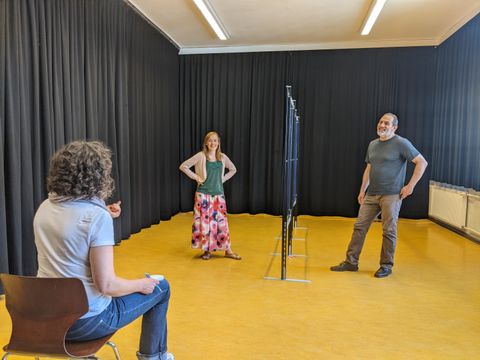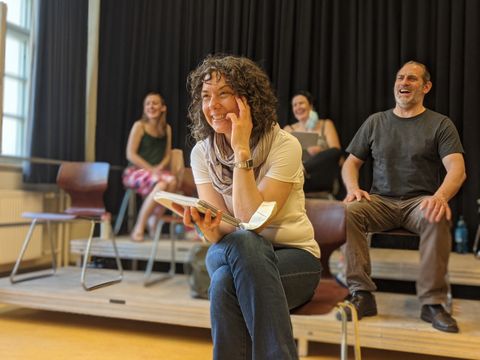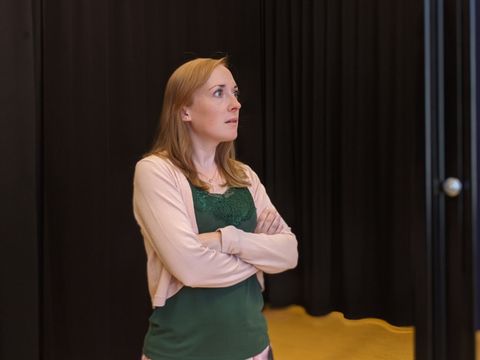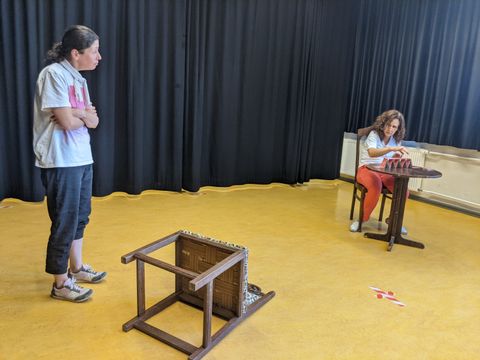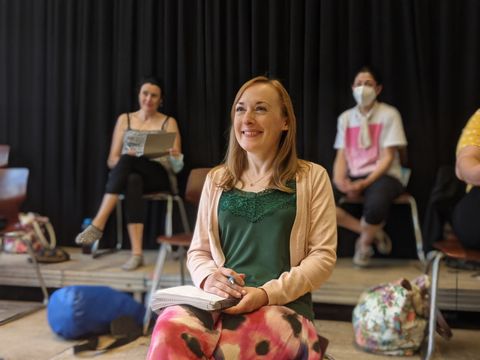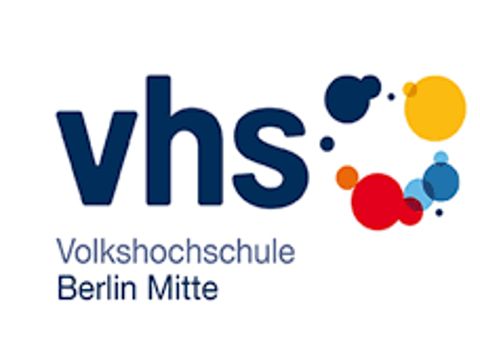No, I have not yet. I myself don’t perceive myself as old yet – it’s all a question of perspective ;-). But you’re probably asking because of director Vanessa Stern, who produced, among other things, one of the stage highlights of the Corona Year 2020 with the theater workshop “In Search of the Comic Old”, which also fell victim to this very pandemic, like so many events last year. With Vanessa Stern, I have produced two “theatrical films” within the last 12 months. In this pandemic hybrid art form between stage and film, I was able to work through the obstacles of being a freelance artist quite well and humorously as an actress. I was pretty lucky in that respect!
Current language: English
A training field for the obstacle race called life
About intimacy instead of polite distance, distance rule professionals and the surprising benefits of crisis.
Ursula Renneke has been a course instructor at the Volkshochschule Berlin Mitte since 2018. She teaches acting and theater courses. When she is not in our theater room, you can see her on German television and even more on stages in Germany. Today we talk about art and culture in pandemic times and how the experience of this new way of teaching has changed everyone.
Kontakt
Infotelefon
montags bis freitags
10 bis 16 Uhr
Persönliche Sprechzeiten Volkshochschule Berlin Mitte


 German Sign language
German Sign language Easy language
Easy language